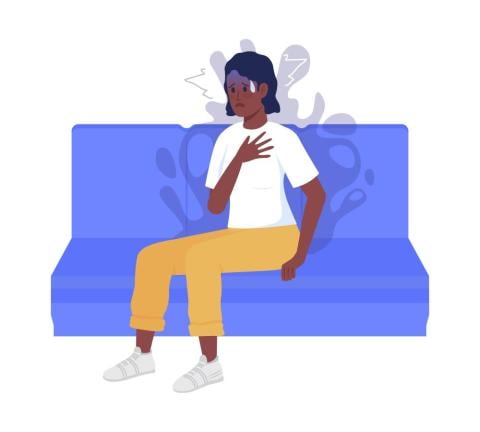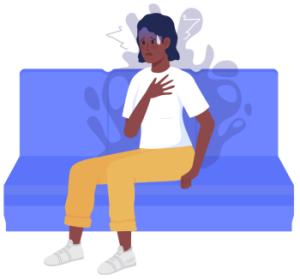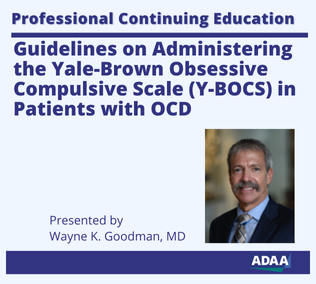Perfectly Imperfect Love: Tips to Recognize & Move Past Relationship OCD
Perfectly Imperfect Love: Tips to Recognize & Move Past Relationship OCD

OCD, or Obsessive Compulsive Disorder, is a mental health condition that can cause significant distress in those who live with it. OCD often manifests as intrusive, unwanted thoughts (obsessions) that lead to repetitive behaviors (compulsions) in an attempt to try and 'fix' or neutralize the thoughts. One form of OCD that is important to discuss and highlight is Relationship OCD.
Relationship OCD (R-OCD) is a form of obsessive-compulsive disorder that can manifest in three distinct types: relationship centered, relationship related and post-termination. Those affected by relationship centered R-OCD often have intrusive ideas and thoughts about their partners that are associated with significant distress and anxiety. Individuals who struggle with relationship related R-OCD preoccupy themselves with perceived flaws of their relationship partner. Lastly, those persons afflicted with post-termination R-OCD will often dwell on the fantasy of missing out on what their previous relationship partner could have provided, or similarly, convincing themselves they made the wrong decision in leaving or being left. While the symptoms of each type may vary slightly, the end result is the same: an impairment in everyday functioning due to excessive doubts and preoccupations about one's romantic, familial, or platonic relationship.
Background Information on Relationship OCD
OCD in relationships can look different from person to person, but there are some common symptoms and emotions that those with the condition may experience. Some symptoms of OCD in relationships may include:
- Feeling the need to constantly check in with or monitor a partner
- Needing reassurance from a partner excessively
- Wanting things to be 'just so' and getting upset when they're not
- Feeling like things have to be done a certain way or else something bad will happen
- Withdrawing from activities or people outside of the relationship
- Feeling hopeless, helpless, or ashamed because of the condition
It's also common for people with R-OCD to go through periods of feeling extremely close to their partner followed by periods of feeling distant and disconnected.
Steps to A More Positive Relationship for Those With R-OCD
If you're struggling with OCD in your relationship, know that you're not alone and there are steps you can take towards having more positive experiences. Some things that may help include:
- Seeking professional help from a mental health therapist who specializes in treating OCD.
- This can be an incredibly valuable step in learning how to manage symptoms and work towards creating lasting change.
- Practicing distress tolerance and emotion regulation techniques to reduce stress levels.
- When we're stressed, our bodies go into 'fight or flight' mode which can make it harder to think clearly and make decisions based on what we want rather than what our anxiety is telling us we need. Using skills and coping plans helps reduce stress and can make it easier to manage anxiety when it does crop up.
- Identify and challenge OCD-related maladaptive beliefs.
- Learning how to challenge our fears rather than listen to them. This is challenging and it is beneficial to work with an Exposure and Response Prevention Therapist to learn how to build and use exposures to stop the vicious cycle of OCD.
- Finding positive coping strategies for dealing with intrusive thoughts or obsessions.
- Take care of yourself when triggered by your obsessions. You cannot control that they have started and instead of trying to get rid of them work with them in an effective way.
R-OCD is treatable with the right help, support, and strategies. Cognitive Behavioral Therapy (CBT) is an effective approach that can help you work with OCD symptoms and challenge distressing thought patterns. With the right care and support, individuals affected by R-OCD can learn new ways of managing their symptoms and find relief from the anxiety caused by intrusive thoughts.
Watch Lara's ADAA on-demand webinar on this same topic.
Reference
Doron, G., Derby, D., Szepsenwol, O. (2013). “Relationship obsessive compulsive disorder (ROCD): A Conceptual Framework. Journal of Obsessive-Compulsive and Related Disorders, 3, 169-180.





















